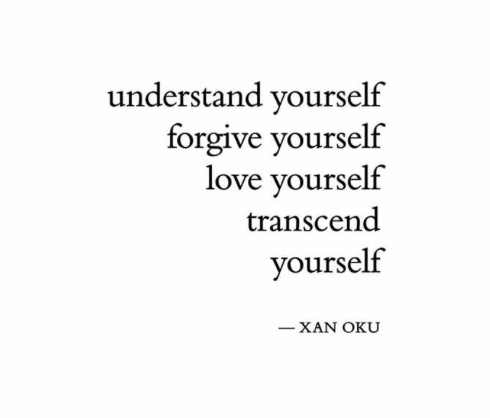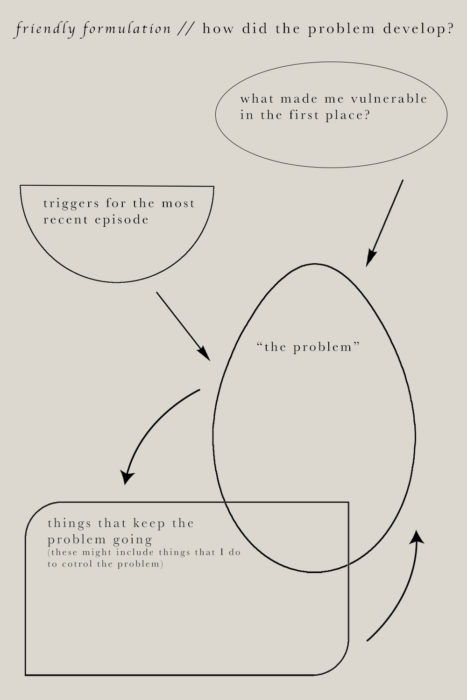“Understand yourself, forgive yourself, love yourself, transcend yourself.” These words by poet, Xan Oku, have been on the forefront of my mind the last six months. It is without question that many of us have spent more time by ourselves with quarantine in place. Personally, I’ve taken this time to get to know myself better—to dig a little deeper into my own thoughts and emotions. This is quite possibly the most time we have all had to sit with ourselves; and thus a rare and rich opportunity for self-discovery. This time has been pivotal to consider how, what and who, has shaped me into the person I am at this very moment, and something I highly recommend for others to take advantage of.
Often, it’s during the most difficult of times that bring forth the most important lessons, particularly about ourselves. We navigate through how to handle such situations emotionally, physically, and even spiritually. We discover what helps heal us and identify what continues to harm us. In these last six months, you may have begun to notice the many ways recent events have affected your mental and physical health. Hopefully, you’ve learned something about yourself and your needs along the way.

It’s an easy time to feel blue. Even former first lady, Michelle Obama, opened up publicly regarding her own struggles with mild depression during this time, saying “to feel whatever you are feeling.” So what is that you’ve been feeling? What can you do about it? Let’s start by trying to understand ourselves better. In psychiatry/psychology, we begin to formulate an understanding with what I’ve coined as the “Pearls of You.” These are better known as the “4 P’s”: predisposing, precipitating, perpetuating, and protective.
We use these categories to formulate a better understanding of individuals and to view them in a comprehensive, holistic, and more global way. We are complicated, multi-layered beings; and this helps us get in tune with some of the intricacies of a person.
So what do the “P’s” stand for?
Predisposing: This consists of factors that may lead to a predisposition for certain illnesses or traits, such as anxiety or depression. Some examples such as a family history, chronic medical conditions, intergenerational trauma may put us at risk of developing certain symptoms. We think of this category as one where we have the least amount of control over, and rather as something that has been passed onto us.
Precipitating: These are events that have occurred recently that may be affecting our current physical and mental wellbeing. In this category we would list the pandemic as a clear precipitating factor, that from itself, has sprouted and branched out rapidly into numerous other precipitating factors, such as job loss, financial hardships, and childcare difficulties. Unfortunately for some, the list may be quite lengthy.
Other recent precipitating examples would include the tragic deaths of George Floyd and Breonna Taylor (a few from a long list), racial tensions within our country, and the political divisions surrounding the election.
Additionally in our own state of California, a strong precipitate has been the fires that have been raging and affecting many families in a variety of ways from evacuation to loss of their home or business.
Perpetuating: These are factors that continue to remain present in your life, that may exacerbate the emotional state one is in. This category often is interwoven with precipitating factors, such as those branches that COVID has created i.e. ongoing isolation from family, friends and colleagues, or ongoing financial and job uncertainties. Others may include the daily difficulties associated with juggling work from home, while caring for a child. Think about your daily routines and try to identify those experiences that you recognize can worsen your well being, such as sleep patterns or substance use patterns.
Protective: This is where we think about one’s strengths and resilience that help an individual through hardships they may experience. We identify and empower these traits to attempt to balance all the difficulties life may be bringing in that moment.
You can use the template below as a starting point, to help organize how you think about yourself, and the current things going in your life that may be contributing to your mood/mental health these days.

Given today’s world, there’s so much that is out of our control that may be affecting our mental and physical wellbeing. Consider what you can do to grow your protective factors. Take a moment to think of what methods or traits ring true for you.
Here are some of my personal examples:
- Creating a routine
- Exploring meditation, journaling, and any form of a pause that allows me to connect and check in with myself
- Breathing exercises
- Embracing physical movement, and incorporating into a daily practice
- Creating something, whether it’s a simple meal, redecorating, etc.
When we evaluate our individual pearls, it’s important to identify what aspects we have control over and ones we don’t. We can only do our best to focus our energy where change is possible, while practicing acceptance where we don’t. Remember that while we have little control right now over the pandemic itself, there are small things we can find control over such as wearing a mask, and making safe decisions regarding social distancing. Helping our minds focus on what we can control can help alleviate the steady stream of worries.
If you find yourself with more quiet moments of solitude these days, I encourage you to use the opportunity to get to know yourself better, and as Xan Oku put it, let’s learn to understand ourselves, forgive ourselves and love ourselves.
Milena Perkins is a psychiatrist living in San Francisco with her husband Vic Perkins, their pup Baguette, and cat, Chai. Although a Bay Area native, she recently moved from New York two years ago, where she spent her 20’s pursuing a career in mental health, and feeding her passion for all things design. She hopes to continue growing her interest and knowledge in the psychology of interior design.











Leave a reply